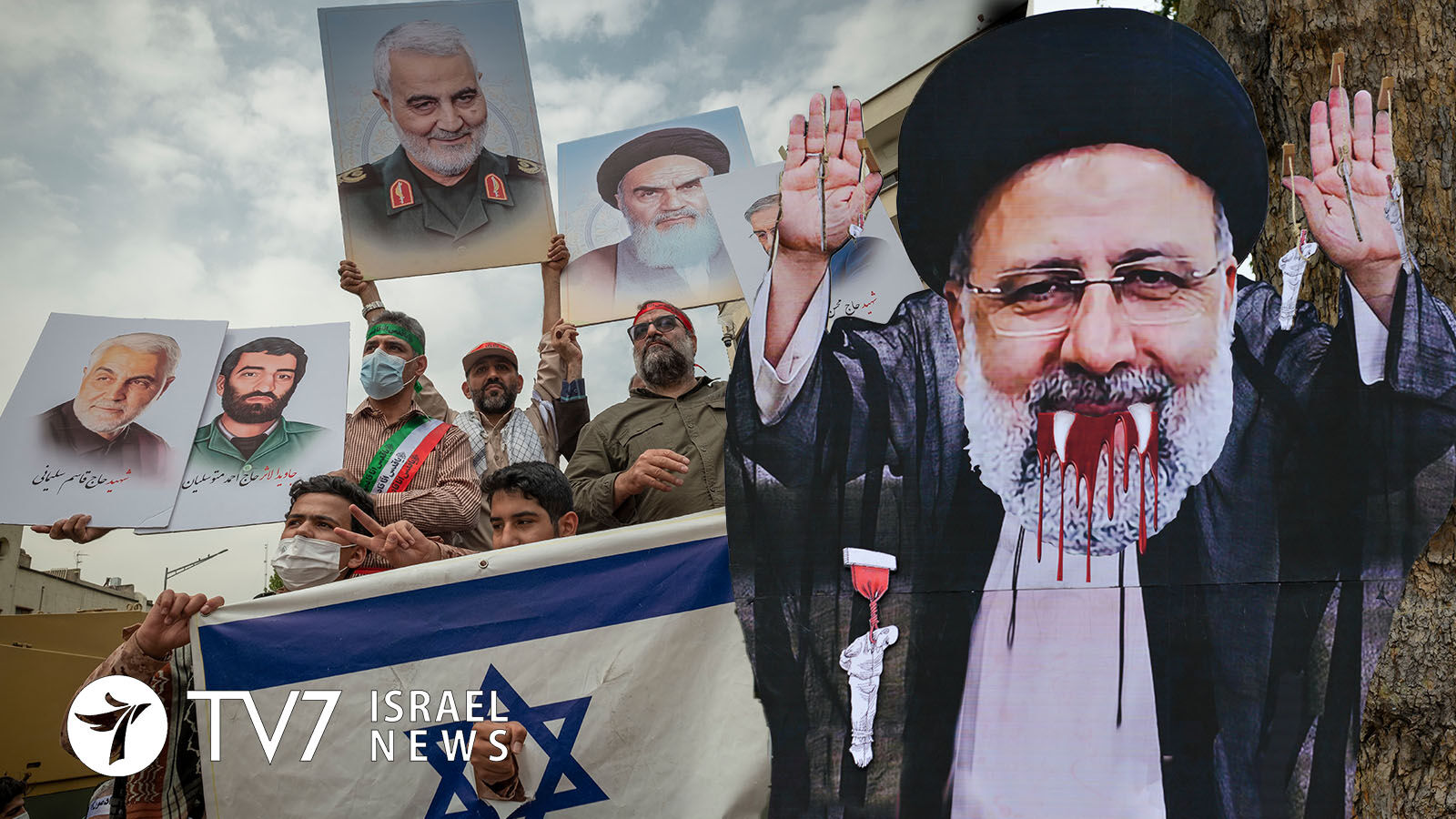The accusation comes amid the one of the toughest challenges to the Ayatollah Regime since the 1979 Islamic Revolution.
By Erin Viner
“Various security services, Israel and some Western politicians who have made plans for civil war, destruction and the disintegration of Iran should know that Iran is not Libya or Sudan,” Iranian Foreign Minister Hossein Amirabdollahian wrote on Twitter.
Iranians from all backgrounds have taken to the streets to express outrage since the 16 September death of 22-year-old Mahsa Amini , who died in custody following her arrest by the so-called “morality police” for attire deemed insufficiently Islamic. Some of the ongoing protests of her killing and the suppression of human rights by clerical rulers in the country have seen calls for the ousting or deaths of Supreme Leader Ali Khamenei and President Ebrahim Raisi.
Amini’s death and the protests that followed have drawn international condemnation of Iran’s theocratic Ayatollah regime, which has has repeatedly accused its foreign enemies, particularly Israel, the US and their alleged local agents, of having instigated the unrest in attempts to destabilize the Islamic Republic.
The public fury persists despite an ongoing violent crackdown by authorities and ultimatums issued by the Islamic Revolutionary Guards Corps (IRGC), which has crushed dissent in the past with the support of its volunteer Basij militia.
The protests are the largest to sweep the country since demonstrations over fuel prices in 2019, when an estimated 1,500 people were killed in a crackdown on protesters – the bloodiest confrontation in the Islamic Republic’s history.
According to the Iran Human Rights organization (IHRNGO), 56 children are among 326 civilians have so far been killed in clashes with security forces over the past two months.
16,033 others have reportedly been arrested on charges including some offenses punishable by death. Iranian authorities are seeking the death penalty for at least 21 people “in sham trials designed to intimidate those participating in the popular uprising that’s rocked Iran since September & deter others from joining the movement,” the Amnesty International rights group said on Twitter.
The mass outbreak of violence has been particularly deadly over the past two days. Seven people were killed on Wednesday in the southwestern city of Izeh in what state media described as a “terrorist attack,” while gunmen riding a motorcycle shot several members of the security forces in the central city of Isfahan, killing two people and injuring eight, in what state TV blamed on “rioters.” Official media also reported that Police Colonel Hassan Yousefi was stabbed to death yesterday in Sanandaj, a city in the northwestern Kurdistan region.
56 members of the Iranian security forces have reportedly been killed in clashes with protestors.
In efforts earlier this week to step up pressure on Iranian authorities, the US imposed sanctions on six senior employees of the state-controlled Islamic Republic of Iran Broadcasting (IRIB) media corporation for serving as a “critical tool” in the suppression and censorship of its people.
The IRIB is a monopoly of domestic radio and television networks whose director is directly appointed by Iran’s Supreme Leader Ayatollah Ali Khamenei; that has been subjected to sanctions pursuant to US Presidential Executive Order 13628 under the “Iran Threat Reduction and Syria Human Rights Act” for restriction and denial of the free flow of information to or from the Iranian people.
The Treasury said the latest measures were imposed due to the broadcast of hundreds of forced confessions by detainees by the IRIB, in addition to interviews of family members forced to state that their relatives had not been killed by Iranian security forces during recent protests but instead died due to accidental, unrelated causes.
Both the Director and Deputy Director were among the sanctioned individuals, as well as two of the network’s “interrogator-journalists,” who Treasury accused of cooperating with the government in extracting and airing forced confessions.
“Two of these individuals are responsible for interrogations, which are often conducted in tandem with Iranian security forces,” said Secretary of State Antony Blinken, saying that the four others who “have taken actions making IRIB more propagandistic.”
Saying that the current action is being taken pursuant to Executive Order 13846, Washington’s top diplomat stressed, “IRIB acts not as an objective media outlet but rather as a key tool in the Iranian government’s mass suppression and censorship campaign against its own people. IRIB has broadcasted forced confessions of Iranian, dual national, and foreign national detainees in Iran in attempts to distort facts and spread disinformation about the ongoing protests in Iran.”
Underscoring that the US “is steadfast in our commitment to supporting the Iranian people protesting nationwide and demanding accountability for their government,” Secretary Blinken stressed, “We will continue to hold Iranian officials and government institutions to account for their human rights violations and mass suppression of the Iranian people.”
Echoing that stance, Treasury Under Secretary for Terrorism and Financial Intelligence Brian Nelson said in a separate statement that, “The Iranian government’s systemic reliance on forced confessions illustrates the government’s refusal to speak truth to its citizens and the international community,” and that the US “remains committed to supporting the Iranian people as they continue their peaceful protests” while continuing “to hold the Iranian government accountable for human rights violations and censorship.”
The decision freezes any US assets of those designated, and American firms that engage in certain transactions with them also risk being hit with sanctions.
